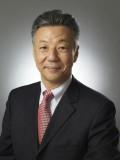Event
 Recent Structural Change of the Chinese Economy and Japan-China Relations
Recent Structural Change of the Chinese Economy and Japan-China Relations
Kiyoyuki Seguchi, Research Director at Canon Institute for the Global Studies

The structure of the Chinese economy changed dramatically between 2005 and 2009. It changed from an export-investment leading economy to a domestic-demand leading economy. Before 2004 China was a huge factory because of its cheap and abundant labor. After 2010 it has become a huge market because of the rapid increase of their income level.
Not only the rapid growth of China’s GDP, but the rapid increase of the number of middle-class-income people in China whose GDP per capita surpass 10 thousand USD gave Japanese companies many business chances since 2010. Even under the worst political condition between Japan and China after Senkaku territorial dispute most of Japanese companies keep increasing their investment in China because Chinese local governments are so eager to invite the investment of Japanese companies. If Japan and China can realize the normalization of Sino-Japan relations, their win-win relationship should be accelerated.
The Xi Jinping’s administration started officially in March. Chinese ordinary people’s complaint against the Chinese government seems very strong mainly because the former administration put off the resolution of many important problems including the corruption of governmental officials, environmental deterioration, economic inequality. Xi Jinping’s administration should work on these difficult problems. In such a situation it is important for China to normalize Sino-Japan relations to enhance the economic stability.
Kiyoyuki Seguchi is the Research Director of the Canon Institute for the Global Studies. His research focuses on the Chinese economy and relations between the United States, China and Japan. He worked for the Bank of Japan from 1982 to 2009. He was the Chief Representative of the Representative Office of BOJ in Beijing from 2006 to 2008, the international visiting fellow at RAND Corporation (Los Angeles, CA) from 2004 to 2005. He received a bachelor’s degree in economics from the University of Tokyo.
